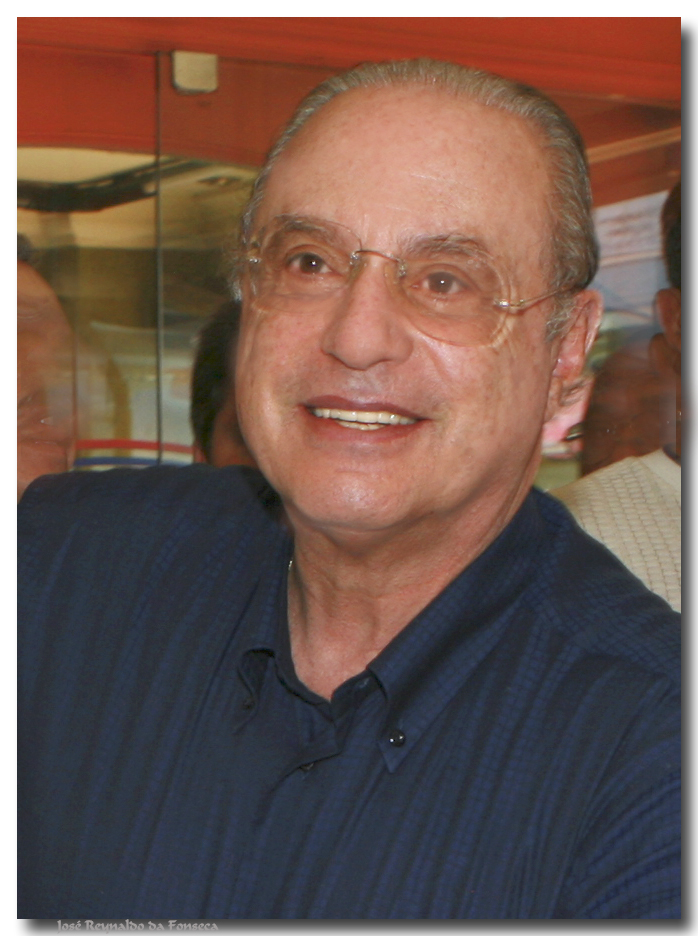- Paulo Maluf
Infobox Politician
name = Paulo Maluf

caption =
small_
office = Governor of São Paulo (appointed)
term_start =March 15 ,1979
term_end =May 14 ,1982
predecessor =Paulo Egídio Martins
successor =José Maria Marin
constituency =
majority =
office2 = Mayor of São Paulo
term_start2 =January 1 ,1993
term_end2 =December 31 ,1996
predecessor2 = Luiza Erundina de Souza
successor2 =Celso Pitta
constituency2 =
majority2 =
office3 = Mayor of São Paulo (appointed)
term_start3 =April 8 ,1969
term_end3 =April 7 ,1971
predecessor3 =José Vicente Faria Lima
successor3 =José Carlos de Figueiredo Ferraz
constituency3 =
majority3 =
birth_date =3 September 1931
birth_place =São Paulo
death_date =
death_place =
party = PPB, ARENA
relations =
spouse =
civil partner =
children =
residence =
occupation =Civil engineer
religion =
website =
footnotes = :"Maluf redirects here. For the Tunisian music genre, seeMa'luf ".Paulo Salim Maluf (pron. IPA2|ˈpawlu saˈlĩ maˈlufi) (b.3 September 1931 ,São Paulo ) is a Brazilian politician with a career spanning over four decades and many functions, including state governorship (São Paulo), presidential candidate and mayor of the city ofSão Paulo . He has been plagued throughout his political career with substantial allegations of corruption. He was convicted on one charge in 2001. Due to the nature of the Brazilian judicial system, only final convictions (without possibilities of appeal) are considered. He is currently a leader ofProgressive Party of Brazil (PP), heir of the oldNational Renewal Alliance Party (ARENA).Biography
Paulo Salim Maluf, the son of Lebanese Christian immigrants Salim Farah Maluf and Maria Stephan Maluf, graduated 1954 in engineering at the
University of São Paulo (USP), where coincidentally he was a colleague of the lateMário Covas , another important Brazilian politician who would later become one of his biggest political rivals.Thanks to his friendship with the then military president
Artur da Costa e Silva , he was appointed mayor ofSão Paulo in 1968, replacing the very popularFaria Lima . In a manner very similar to New York’sRobert Moses , he suspended the construction of theSão Paulo Metro and built one of the most controversial constructions of Brazil:Costa e Silva elevatedexpressway , also known as "Minhocão" (“BigEarthworm ” in Portuguese). This expressway is seen as responsible for the degradation of a great area of São Paulo´s downtown by placing a high-traffic elevated road in the middle of the city.In 1972, following his mayorship, he served as secretary of transport of the state of São Paulo. He would then succeed in being appointed state governor for the state of São Paulo in 1978, during which one of the most notable accusations of corruption against him emerged, concerning the
oil company Paulipetro . This was a state company founded by Maluf during his tenure as governor with the purpose of digging the state for oil and which consumed around US$500 million whilst digging up 21 holes and finding nothing but a few pockets ofnatural gas and water.He was then successfully elected a federal deputy with a record 672 629 votes in 1982 and was the military's preferred presidential candidate for the 1985 presidential elections, where he stood a good chance of winning until his PDS party (as the current PP was known at the time) splintered into the PFL, resulting in the election of
Tancredo Neves . He has since then only successfully managed to get himself elected once, in 1992, again as mayor ofSão Paulo , despite his participation in every single state and mayoral election for São Paulo state and São Paulo city, with the exception of 1989 when he was a presidential candidate, although the election ofCelso Pitta can be directly attributed to his endorsement.One notable example of the allegations of corruption surrounding his name is the
Ayrton Senna tunnel, which passes underneath the Ibirapuera park and has a cost per kilometer bigger than that of theChannel Tunnel (it is alleged that the tunnel cost over US$400 million more than it should). Under dispute is Maluf's personal wealth, which critics attribute to his corruption scandals and proponents attribute to his family companies (which are, admittedly, quite large). He was also recently part of an extensive investigation regardingmoney laundering involving bank accounts of himself and family inJersey (one of theChannel Islands ). He has been convicted of corruption multiple times, but only in 2001 was the sentence final, with no possibility of appeal. At the time he was forced to pay approximately R$500.000 to the state. Many of his alleged crimes cannot be prosecuted, due to the nature of the Brazilianstatute of limitations . Even if he were to be convicted, there would be serious questions about whether he would serve jail time, as he is over 70 years of age.In early
September 2005 , Paulo Maluf and his sonFlávio Maluf were temporarily arrested by the Brazilian Federal police, under the charge of intimidating witnesses of an ongoing investigation. They were only incarcerated for a few weeks.So notorious is Maluf's reputation that in Brazil the verb "malufar" was created, meaning "to steal public money". This verb is also sometimes used outside Brazil, with one example being the French newspaper "Le Monde". [http://www.lemonde.fr/web/article/0,1-0,36-688092,0.html]In the 2006 elections, Maluf ran for a seat in the Brazilian Chamber of Deputies. He was not only elected, but also the federal deputy candidate to have won the most votes in the country.
On March 9, 2007, Robert M Morgenthau of the Manhattan's District Attorney's office issued an [http://www.nytimes.com/2007/03/09/world/americas/09indict.html?em&ex=1173589200&en=0097af41dc0be82b&ei=5087%0A] indictment against Paulo Maluf for Money Laundering in relation to a kickback & inflated invoice scheme that allegedly stole $11.6m from a Brazilian road contract project totalling $140 million.
Wikimedia Foundation. 2010.
